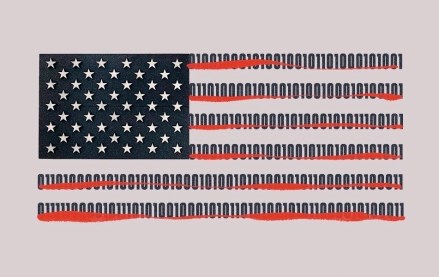
Much has been written about how embattled CMOs are risk-averse. Equally as much time has been spent talking about how tough the agency business has become, with shrinking margins and a full-scale identity crisis in terms of who they are and how they should continue to evolve. Yet despite all of the hand-wringing and navel-gazing, agencies — especially those housed within the major global holding companies — tend to still operate their client relationships and their businesses as if it were 1999.
At some point marketers are going to wake up to the reality of the marketplace and look for other partners or take a more proactive leadership role in establishing in-house mobile marketing capabilities. Several Fortune 50 brands are doing just that. Coca-Cola, for one, is investing both time and resources into their own mobile “center of excellence.” Considering that marketers typically take their cues from one of the brand behemoths, this doesn’t bode well for agencies.
The current reticence of agencies to put mobile front and center for their clients is disturbingly similar to the early days of the interactive industry, when P&G sounded a clarion call for this new marketing platform. But agencies were slow to embrace the opportunity en masse, and in effect, have been playing catch up to third-party specialists for the past decade.
From my vantage point, there are two key steps agencies must take to position themselves as the central, strategic partner for marketers as they move into this new mobile economy. This is not optional; agencies are looking down the barrel of a new marketing imperative.
The first is, mobile can’t be siloed. The fundamental mistake most agencies make is to look at mobile as another bucket in their traditional media mix modeling matrices. Holding companies have purchased some mobile start-ups since 2007, but instead of integrating the brainpower organically, the typical agency mobile team is often a tacked-on extension of the digital team. This must change. Mobile specialists must be spread horizontally across the spectrum of agency disciplines and departments to have impact.
Mobile is not a medium in the way that search, e-mail, display, video and even social are distinct platforms; rather, it is a consumer-led behavioral paradigm change. The full apotheosis of mobile will ultimately represent the full potential of communication and commerce in our global, interconnected culture. In order to fully harness and prepare for this type of change, agencies need to re-orient their cultures. Beyond hiring mobile specialists, they need to retrain existing staffers without a mobile background. In fact, the MMA recently launched a mobile training initiative, The Mobile Certified Marketer program, to get agency people up to speed with current mobile best practices.
Once agencies have adjusted their cultures and infrastructures to better meet the mobile challenge, they would be best served by aggressively touting the mantra of “test, measure and refine” to their client bases. This requires rattling hidebound mindsets and not tolerating traditional (and increasingly invalid) excuses. That means zero tolerance for creative directors who complain that the screen size is too small to generate the type of brand-building creative that drives traffic and engagement.
Also, the oft-cited excuse that the lack of an established, clear- cut, universal metric to judge success is the reason to stand on the sidelines is really nothing more than a defense of the stagnant status quo. It is not a good enough reason to refrain from testing new ideas and campaigns in mobile. There are plenty of nascent measurement and optimization models being worked on from all quarters of the mobile spectrum, including technology partners, ad networks and even carriers who are all eager and willing to support agencies and their clients in sculpting more refined ROI schemes.
These recommendations may seem daunting for agencies to embrace, but consider the inevitable pain and chaos that is the far worse alternative. It’s time for agencies to buck up and reaffirm their places as the primary strategic, creative and executional partners for marketers. That means not relying on the knee-jerk habits of the past. If agencies truly have their clients’ best interests at heart, there is no way that they should continue to invest the same dollars against on-line, print or even television ads at the expense of a smart, proactive mobile plan.
Greg Hallinan is CMO of Verve Mobile, a location-powered mobile advertising and publishing platform.
Image via Shutterstock
More in Marketing

WTF is the American Privacy Rights Act
Who knows if or when it’ll actually happen, but the proposed American Privacy Rights Act (APRA) is as close as the U.S. has ever come to a federal law that manages to straddle the line between politics and policy.

Here’s how some esports orgs are positioning themselves to withstand esports winter
Here’s a look into how four leading esports orgs are positioning themselves for long-term stability and sustainability, independent of the whims of brand marketers.

Marketing Briefing: Marketers eye women’s sports as a growth area amid WNBA draft, record March Madness
Marketers are considering the space more this year, according to agency execs, with some noting that the women’s athletes may get more attention from brands ahead of the Summer Olympics this July.





